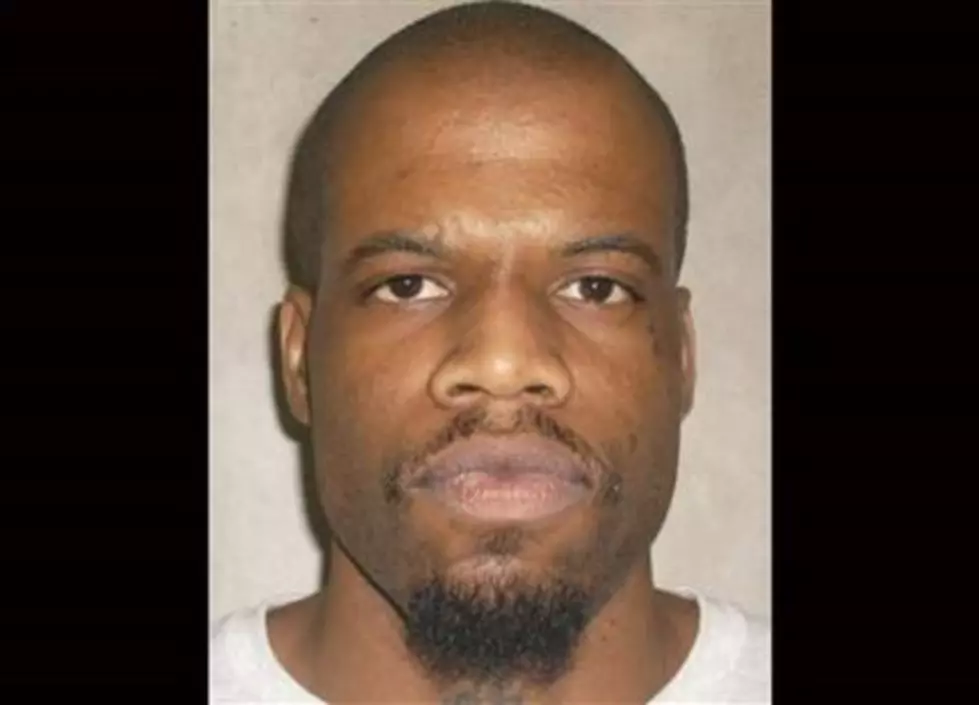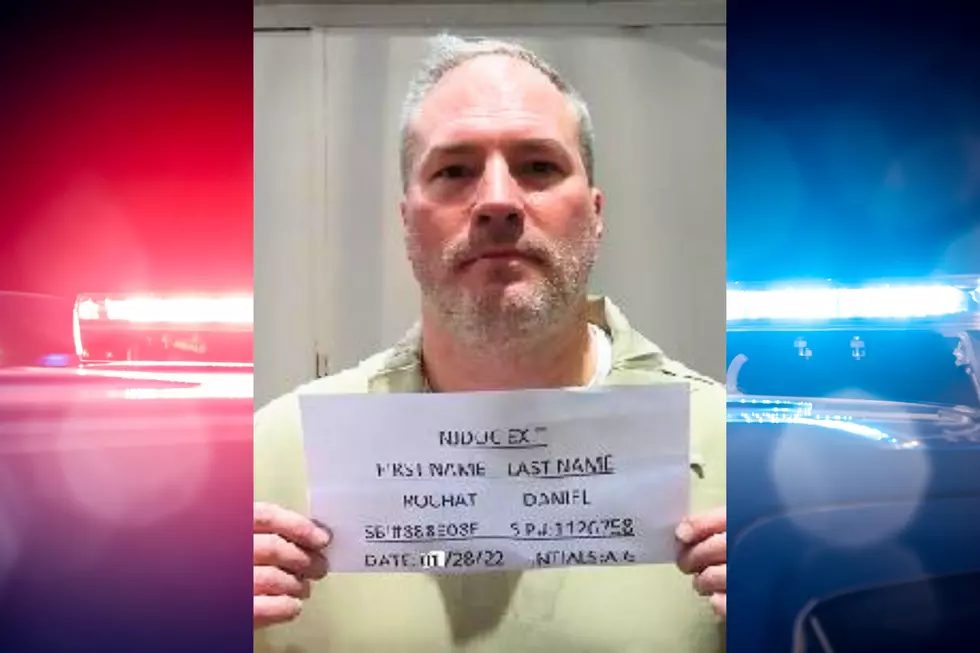
Okla. Gov. Sets Botched Execution Review
Oklahoma Gov. Mary Fallin named a member of her Cabinet on Wednesday to lead a review of the state's execution protocols after a botched procedure that the White House said fell short of the humane standards required.
Fallin said Clayton Lockett, who had an apparent heart attack 43 minutes after the start of an execution in which the state was using a new drug combination for the first time, had his day in court.
"I believe the death penalty is an appropriate response and punishment to those who commit heinous crimes against their fellow men and women," Fallin said. "However, I also believe the state needs to be certain of its protocols and its procedures for executions and that they work."
Lockett convulsed violently and tried to lift his head after a doctor declared him unconscious, and prison officials halted the execution. Fallin said "an independent review of the Department of Corrections procedures would be effective and also appropriate."
The governor said the review, to be led by Department of Public Safety Commissioner Michael Thompson, will focus on Lockett's cause of death, noting that the Oklahoma State Medical Examiner has authorized an independent pathologist to make that determination. The review will also look at whether the department followed the current protocol correctly and will also include recommendations for future executions.
Fallin also said a stay for Charles Warner, who had been scheduled to die two hours after Lockett, is in place until May 13. She said Warner's execution will be further delayed if the independent review is not complete by then.
Warner's attorney immediately raised objections to the investigation being led by a member of Fallin's cabinet.
"I don't consider that to be an independent investigation," said attorney Madeline Cohen.
Lockett, 38, had been declared unconscious 10 minutes after the first of three drugs in the state's new lethal injection combination was administered Tuesday evening. Three minutes later, he began breathing heavily, clenching his teeth and straining to lift his head. Officials later blamed a ruptured vein for the problems with the execution, which are likely to fuel more debate about the ability of states to administer lethal injections that meet the U.S. Constitution's requirement they be neither cruel nor unusual punishment.
The blinds eventually were lowered to prevent those in the viewing gallery from watching what was happening in the death chamber, and the state's top prison official later called a halt to the proceedings. Lockett died of a heart attack shortly thereafter, the Department of Corrections said.
Most executions in Oklahoma, which used different fast-acting barbiturates, were completed and the inmate declared dead within about 10 minutes of the start of the procedure.
In Washington, White House spokesman Jay Carney said President Barack Obama believes that evidence suggests the death penalty does little to deter crime, but that some crimes are so heinous that the death penalty is merited.
Lockett, a four-time felon, was convicted of shooting 19-year-old Stephanie Neiman and watching as two accomplices buried her alive in rural Kay County in 1999. Neiman and a friend had interrupted the men as they robbed a home.
"But it's also the case that we have a fundamental standard in this country that even when the death penalty is justified, it must be carried out humanely," Carney said. "Everyone would recognize this case fell short of this standard."
Questions about execution procedures have drawn renewed attention from defense attorneys and death penalty opponents in recent months, as several states scrambled to find new sources of execution drugs because drugmakers that oppose capital punishment - many based in Europe - have stopped selling to U.S. prisons and corrections departments.
Defense attorneys have unsuccessfully challenged several states' policies of shielding the identities of the source of their execution drugs. Missouri and Texas, like Oklahoma, have both refused to reveal their sources and both of those states have carried out executions with their new supplies.
The medical examiner's office, which said earlier Wednesday that the autopsy had begun, later said only the toxicology portion of the autopsy had been started and that the surgical portion will be conducted by an independent pathologist.
Medical examiner's spokeswoman Amy Elliott said the autopsy on Lockett would include an examination of the injection sites on his arms and a toxicology report to determine what drugs were in his system. Elliott said and it could take two to four months to complete the toxicology report.
Tuesday was the first time Oklahoma used the sedative midazolam as the first element in its execution drug combination. Other states have used it before; Florida administers 500 milligrams of midazolam as part of its three-drug combination. Oklahoma used 100 milligrams of that drug.
Oklahoma's Attorney General Scott Pruitt had said about a month ago that the lower dosage would ensure the state maintains an adequate supply for future executions.
"We say 100 milligrams is going to the job," Pruitt said at the time, adding that the information the state had indicated that at that dose, "you go to sleep doggone quick."
In Ohio, the January execution of an inmate who made snorting and gasping sounds led to a civil rights lawsuit by his family and calls for a moratorium. That execution also used the drug midazolam, but in a lower dosage than Oklahoma used and as part of a two-drug combination. The state has stood by the execution but said Monday that it's boosting the dosages of its lethal injection drugs.
Lockett and Warner had sued the state for refusing to disclose details about the execution drugs, including where Oklahoma obtained them. The case, filed as a civil matter, placed Oklahoma's two highest courts at odds. The state Supreme Court later dismissed the inmates' claim that they were entitled to know the source of the drugs.
Executions by lethal injection involve a common medical procedure and government-approved medications - used for non-medical purposes. That's one reason why the American Medical Association and several other physician and nurses groups oppose having their members participate in executions. Here's how the procedures and drugs are supposed to work, and what can go wrong.
IV INJECTIONS
These are performed in doctors' offices and hospitals to administer fluids and medication. Typically a needle-tipped catheter is inserted into a vein, through which medication is given, in single doses or continuously infused.
Vein ruptures - reported to have happened in Oklahoma's execution Tuesday - can occur if an IV needle accidentally pokes all the way through a vein wall, or causes it to burst open, allowing IV fluid or drugs to flow out of the vein and not to the intended target - like a leak in a garden hose. That could happen under any number of circumstances, including if the patient's arm moved during needle insertion, or if a tightened tourniquet creates too much pressure in the vein, causing it to burst like a balloon when the needle pierces it.
In medical settings this is usually fairly inconsequential; nurses attempting to insert the IV typically would notice bruising or swelling and would then insert it in a different vein before administering medication. Experts say it occurs most often in older, sick patients with frail veins, or IV drug users whose veins have scarred, but it is uncommon in healthy younger people.
Sometimes attempts to insert an IV miss the vein entirely, allowing fluid or drugs to flow into surrounding tissue instead of into the bloodstream. That also can cause swelling and pain at the injection site, and can delay action of the medication. While IV saline is typically harmless, many medications can cause serious tissue damage if they spill out of the bloodstream and the breach isn't treated right away.
IV injections are considered extremely safe in skilled hands. It is uncertain how much training was given to the three technicians who each administered one of three drugs used in the Oklahoma execution. According to the state's execution protocol, the warden recruits a "licensed/certified health care specialist in IV insertion." The identity of that person is not disclosed.
THE DRUGS
The drugs given to Oklahoma inmate Clayton Lockett were midazolam, vecuronium bromide and potassium chloride - all potent drugs with potentially serious side effects. In executions, they are typically injected in that order, at high doses.
Midazolam is a short-acting sedative sold under the brand name Versed, sometimes used to calm patients before medical procedures or before surgery involving general anesthesia. Side effects can include serious breathing problems and cardiac arrest. Vecuronium bromide is a muscle relaxant used during some surgeries. It also can cause breathing difficulties. Potassium chloride is used to treat potassium deficiency but is used in executions to stop the heart.
DOCTORS AND EXECUTIONS
The American Medical Association has a longstanding policy against doctors participating in executions, including selecting injection sites or starting IV lines, given their oath to "do no harm." It also says it is unethical for doctors to be present at executions, including declaring an inmate dead. That's because a doctor might be put in the position of saying more drugs are needed if the first doses weren't lethal. AMA policy is not legally binding and some states allow doctor participation. Oklahoma protocol calls for a physician to "monitor the condemned offender's level of consciousness." A doctor in the death chamber with Clayton Lockett appeared to do so.
More From New Jersey 101.5 FM









